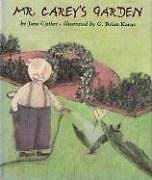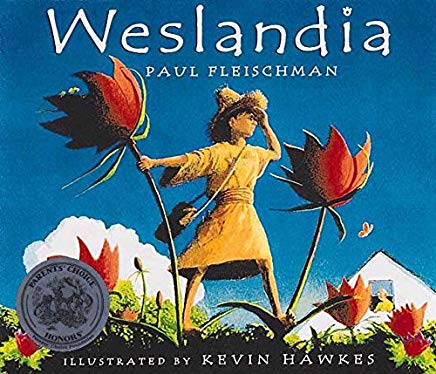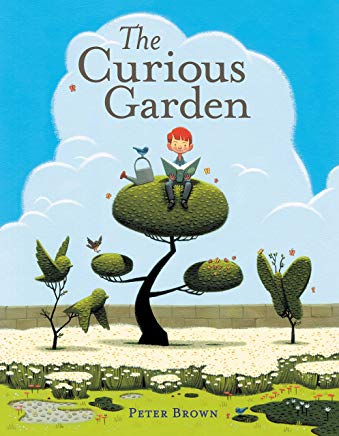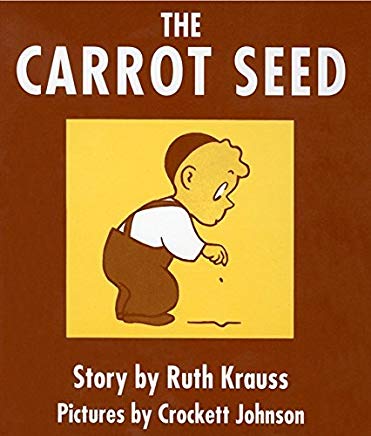The Blog
Blog Entry
Weeding is Fundamental
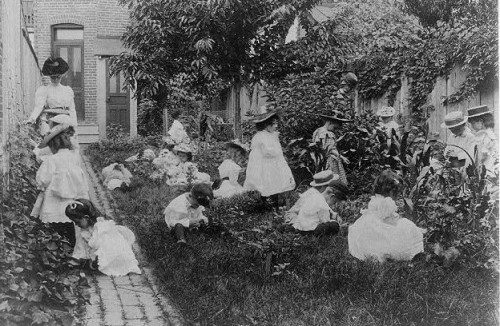
What do we talk about when we talk about gardening? In children’s books you could probably make the case that this conversation began (or was anyway forever changed) in 1945 with the publication of The Carrot Seed, in which an intrepid young gardener weeds and waters and not too impertinently ignores the best advice of his busybody family. The payoff is finally so gigantic it could probably feed an entire neighborhood, if they weren’t afraid of rosy, mammoth carrots, which they probably would be. I’ve always wondered a little about the ungodly color of this harvest, as though it had swelled into something far beyond carrot-ness, which its guardian and creator spirits away in a wheelbarrow, neither crowing nor tipping his cap nor revealing his future ambitions. It makes me happy to think of him still out there somewhere, rolling and bumping along and attracting funny looks.
And I’m happy he never made pie. Really, if this were the last children’s book ever published, they would have gone out on a high note. Which isn’t to say that I do not continue to welcome, even thrill to elaborations from authors less reticent than Ruth Krauss, and illustrators with more in their paint kit than Crockett Johnson’s seminal tuber. Witness Peter Brown’s flowering trellises and primordial lily pads and elephant shaped topiaries in The Curious Garden, which begins, as many of these stories do, with nothing but a scrubby patch of green. Add one lonely child, heroic determination, setbacks, winter, art chops, and what you finally get is a landscape that is pretty irresistible. The story’s like that too. Everyone comes around. You could get lost staring into all of these riotously connecting gardens in the end (you could get lost staring into the cover), but I’m not sure the curiosity isn’t all ours.
Still, for readers who wonder if this isn’t taking the whole gardening thing about as far as it needs to go, I’d say maybe, unless you are willing to travel as far as Weslandia, so named by its geeky teenage founder. This book begins jarringly (“Of course he’s miserable,” bemoans his mother, with no prior introduction, “He sticks out.” “Like a nose,” elaborates his dad), turns stranger (Wesley gets chased around town by boys with their heads shaven faddishly in half), and sometimes makes very little sense at all (seeds from the West arrive miraculously with the wind, just like he has read about in a unit at school), yet all of the subsequent agriculture feels not only brave and quixotic, but somehow also proportional to its soul-killing suburban alternative. Those seeds become weeds that bear fruit unlike anything else in the neighborhood (only beans and tomatoes and Brussels sprouts: weird) which are merely the starting point for an entirely self-sustaining alternative civilization, where cultish looking robes are eventually woven from the versatile weeds, suntan lotion extracted and sold, platforms erected, constellations renamed, new ball games invented, and an eighty letter alphabet conceived to record the entire two-month history of the civilization’s founding.
Wesley wins converts too, be-robed and bedazzled and swishing along behind him on the first day back to school – fitting comeuppance in a book about teens. Gone then the quiet conviction and pastoral serenity of The Curious Garden. These dummies need a leader, and the gleam through Wesley’s glasses on the final page hints at grander, stranger plans.
I don’t know how many teens will ever read this book, but they may remember it from earlier, and that is the most you can probably ask. And I don’t know how many people will recognize themselves in Mr. Carey’s Garden, but it would be a pity if the characters’ age were the obstacle. Four senior gardeners live at the end of Blackberry Lane, each one’s crop a source of singular and sustainable pride. Nothing show-offy though – you get the feeling these finger-licking watermelons and milk-fed pumpkins and sky-scraping sunflowers are really their own reward – indeed these neighbors may even prove disappointingly genial to anyone spoiling for a fight after Weslandia. Here is Mr. Munsing recommending salt to kill the snails that are eating holes in Mr. Carey’s garden, here is Mr. Febold suggesting poison, and here is Mr. Carey responding like the boy with the seed who has learned to put words to his demurrals – “I see it in a different light” – until the sort of moon-soaked summer night that always, dependably arrives. This isn’t only faith, but a wealth of experience to draw from, when you have seen your share of giant carrots, and recognize the accidental blessings for what they are.

